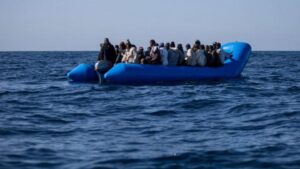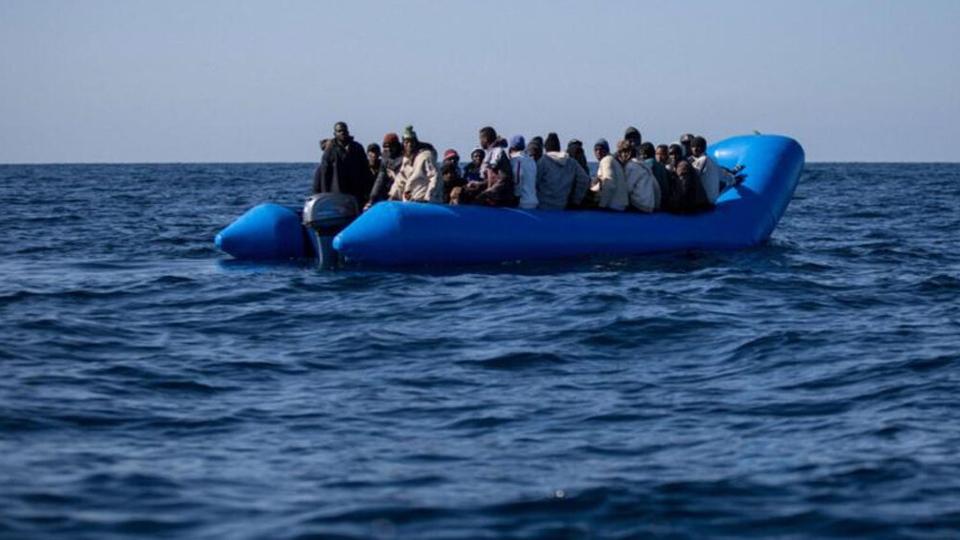The Atlantic migration route to Spain, particularly the journey to the Canary Islands, continues to claim a devastating number of lives and Gambians remain among those most at risk.
Between January and May 2025, at least 1,482 people died trying to reach the Canary Islands from West Africa, according to a new report from Spanish NGO Caminando Fronteras. The report, Monitoring the Right to Life, highlights the staggering human cost of irregular migration, with Gambia still heavily represented in one of the most dangerous corridors into Europe.
While overall arrivals to Spain have decreased slightly this year, the Canary Islands route remains the deadliest. Of the total 1,865 deaths recorded across all four main sea routes to Spain, nearly 80% occurred on the Atlantic crossing.
The report shows that 110 people died this year attempting the journey from Gambia and Senegal. The route from Mauritania was even deadlier, with 1,318 lives lost a significant number of whom may have initially started their journeys further south, including from Gambia, before transiting through Mauritania.
Caminando Fronteras also confirmed that at least 38 boats disappeared entirely en route to Spain, with no survivors found.
Longer, Riskier Journeys
Tighter border controls in Morocco and Western Sahara have pushed many smugglers to launch boats from more remote parts of the African coast. The report notes increased departures from cities like Guelmin, Sidi Ifni, and Tiznit a shift that forces migrants to travel longer distances over open Atlantic waters in overcrowded, fragile vessels often described as “floating coffins.”
While the number of boats leaving Senegal and Gambia appears to be dropping, more departures are now occurring from Mauritania, using larger wooden fishing canoes known as cayucos. These journeys are especially treacherous, often lasting a week or more in harsh conditions with limited food, water, or navigational equipment.
Gambians Among Dozens of Nationalities Lost at Sea
Victims identified by the NGO include migrants from 22 countries, many of them West African: Gambia, Senegal, Mali, Nigeria, Burkina Faso, and Ivory Coast among them. Others came from Central Africa, the Horn of Africa, and even as far as Afghanistan, Syria, Bangladesh, and Pakistan.
For families in Gambia, the tragedy is not just the loss of loved ones, but often the lack of information. Many relatives wait weeks or months without news, holding onto hope even as boats go missing.
“They Knew Where the Boats Were, but Did Nothing”
Caminando Fronteras is sharply critical of Spanish and African authorities, accusing them of failing to act even when boats in distress are located. The group says rescue resources are not deployed quickly enough and in some cases, not at all unless a boat is already sinking. It also cites “discriminatory” practices and poor coordination between countries that delay or obstruct rescue efforts.
“There’s no sense of urgency to save lives unless a tragedy is already unfolding,” the report says. “That delay turns risk into death.”
The NGO also denounces violence and extortion by smuggling networks, abuse by security forces, and the extreme physical conditions endured by migrants in overcrowded and unseaworthy boats.

Gambia’s Challenge
Despite government awareness campaigns and efforts to provide alternatives to irregular migration, the “backway” route remains active especially among young people in Gambia who see no future at home. Economic hardship, unemployment, and social pressure continue to push Gambians toward Europe, often via unsafe routes.
The rising number of deaths on the Canary route is a stark reminder of the dangers that persist. As long as the root causes remain unaddressed and as long as rescue and protection systems remain flawed more Gambians may risk and lose their lives at sea.





